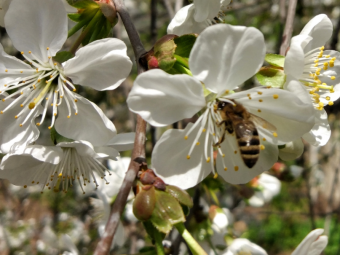Популярное
- XXVI Regional Music Festival “Our Hopes” Opens in Dagestan
- Dagestani Taekwondo Athlete Wins Silver at World Junior Championship
- Dagestani Wrestler Claims Gold at Russian Youth Championship
- Large-Scale Modernization of Rehabilitation Centers Underway in Dagestan
- Landmark Archaeological Exhibition Opens in Makhachkala, Showcasing Dagestan's Ancient Past
- Dagestani Folk Ensemble ‘Imamat’ Performs at Summit in India
- Modern Approaches in Gastroenterology Discussed at All-Russian Conference in Dagestan
- First-Ever Hybrid Surgery Performed in Dagestan
- "Our Hopes" Music Festival Gains All-Russian Recognition
- Dagestan State University Becomes Hub for Addressing Caspian Challenges
Dagestan hosts Beekeepers' Forum
|
|
2161
1 минута
At present, approximately 5,000 individuals are engaged in the practice of beekeeping in the Republic of Dagestan, generating an annual output exceeding 1,000 metric tons of honey. In terms of the specific breeds of bees cultivated by Dagestani beekeepers, the predominant varieties include the Karnika, Bakfast and Carpathian strains.
The forum experts have highlighted the necessity for implementing measures aimed at augmenting the population of Grey Mountain Caucasian bees, a breed that exhibits remarkable adaptability to the natural and climatic characteristics of the region.
During this forum, a range of concerns relevant to beekeepers was addressed. Particularly noteworthy is the issue of parasitic mites, which significantly compromise the immune systems of bees and serve as vectors for various viral infections. The escalation of this issue is closely linked to irregularities in the importation of bee packages originating from several Central Asian nations.
The issue of chemical treatment of crop plants in areas inhabited by bee colonies is a pressing one, as it is linked to a decrease in bee colony productivity and, in some cases, even to the demise of entire bee families. Challenges in reporting on field treatments are largely attributable to insufficient information exchange between farmers and beekeepers.








